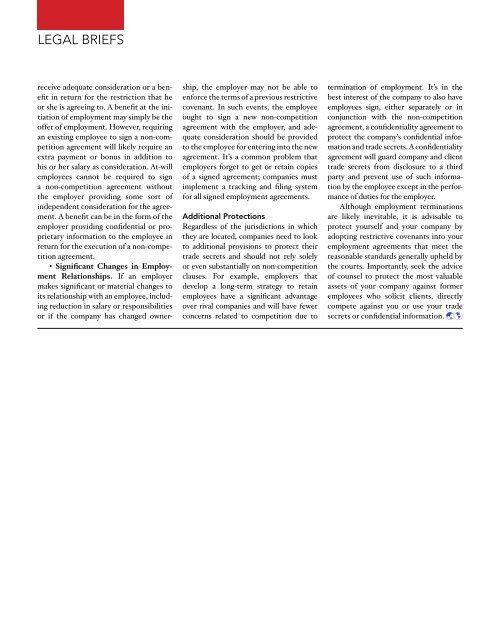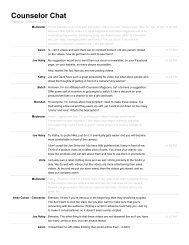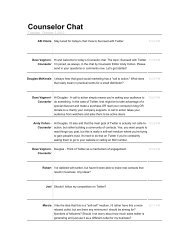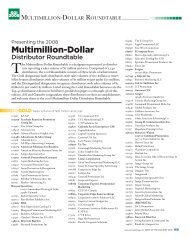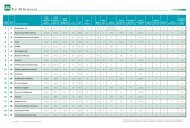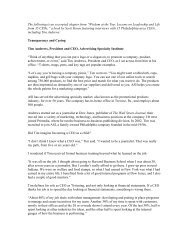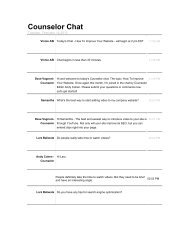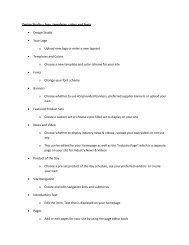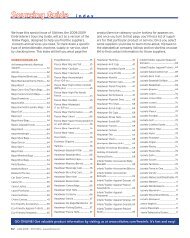Employee Non-Competition Clauses: Questions of Enforceability
Employee Non-Competition Clauses: Questions of Enforceability
Employee Non-Competition Clauses: Questions of Enforceability
Create successful ePaper yourself
Turn your PDF publications into a flip-book with our unique Google optimized e-Paper software.
LEGAL BRIEFS<br />
receive adequate consideration or a benefit<br />
in return for the restriction that he<br />
or she is agreeing to. A benefit at the initiation<br />
<strong>of</strong> employment may simply be the<br />
<strong>of</strong>fer <strong>of</strong> employment. However, requiring<br />
an existing employee to sign a non-competition<br />
agreement will likely require an<br />
extra payment or bonus in addition to<br />
his or her salary as consideration. At-will<br />
employees cannot be required to sign<br />
a non-competition agreement without<br />
the employer providing some sort <strong>of</strong><br />
independent consideration for the agreement.<br />
A benefit can be in the form <strong>of</strong> the<br />
employer providing confidential or proprietary<br />
information to the employee in<br />
return for the execution <strong>of</strong> a non-competition<br />
agreement.<br />
• Significant Changes in Employment<br />
Relationships. If an employer<br />
makes significant or material changes to<br />
its relationship with an employee, including<br />
reduction in salary or responsibilities<br />
or if the company has changed owner-<br />
ship, the employer may not be able to<br />
enforce the terms <strong>of</strong> a previous restrictive<br />
covenant. In such events, the employee<br />
ought to sign a new non-competition<br />
agreement with the employer, and adequate<br />
consideration should be provided<br />
to the employee for entering into the new<br />
agreement. It’s a common problem that<br />
employers forget to get or retain copies<br />
<strong>of</strong> a signed agreement; companies must<br />
implement a tracking and filing system<br />
for all signed employment agreements.<br />
Additional Protections<br />
Regardless <strong>of</strong> the jurisdictions in which<br />
they are located, companies need to look<br />
to additional provisions to protect their<br />
trade secrets and should not rely solely<br />
or even substantially on non-competition<br />
clauses. For example, employers that<br />
develop a long-term strategy to retain<br />
employees have a significant advantage<br />
over rival companies and will have fewer<br />
concerns related to competition due to<br />
termination <strong>of</strong> employment. It’s in the<br />
best interest <strong>of</strong> the company to also have<br />
employees sign, either separately or in<br />
conjunction with the non-competition<br />
agreement, a confidentiality agreement to<br />
protect the company’s confidential information<br />
and trade secrets. A confidentiality<br />
agreement will guard company and client<br />
trade secrets from disclosure to a third<br />
party and prevent use <strong>of</strong> such information<br />
by the employee except in the performance<br />
<strong>of</strong> duties for the employer.<br />
Although employment terminations<br />
are likely inevitable, it is advisable to<br />
protect yourself and your company by<br />
adopting restrictive covenants into your<br />
employment agreements that meet the<br />
reasonable standards generally upheld by<br />
the courts. Importantly, seek the advice<br />
<strong>of</strong> counsel to protect the most valuable<br />
assets <strong>of</strong> your company against former<br />
employees who solicit clients, directly<br />
compete against you or use your trade<br />
secrets or confidential information.


